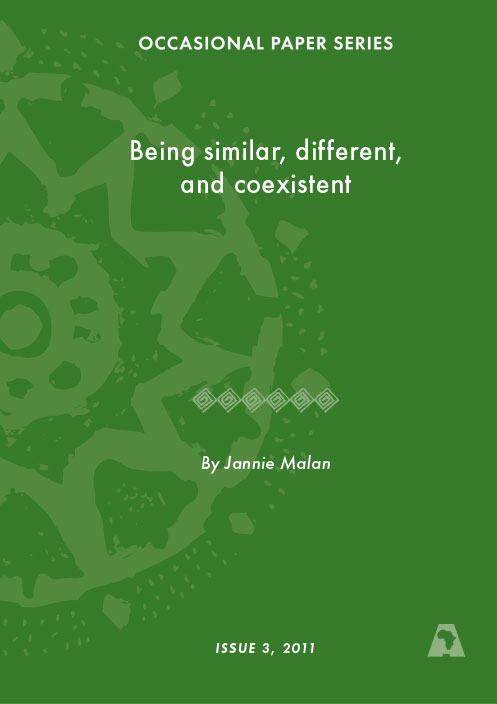
Remarkably meaningful sayings that have emerged out of real life in Africa highlight our inherent interrelatedness as fellow human beings. In the life situations where we happen to find ourselves, there are similarities that bind us together, but also differences that tend to drive us apart. When a group of us becomes concerned about who we are, and who others are, such an ‘identity’ search may tempt us to think that our own group is better than other groups. Various pressures from our cultures, groups and personalities can create and strengthen feelings and habits of being against other groups. It is possible, however, to be liberated from such polarisation and to become turned towards others. The valid belongingness to one’s own group can be retained and promoted, but dominating and discriminating own-groupishness should be rejected.
A transformation from contraexistential to coexistential mindsets and attitudes can be experienced, and such inner changes can obviously lead to changed interaction with others. It should constantly be emphasised, however, that switching to coexisting does not at all mean going to the extreme of loving-kindness. According to the situation, coexistence may range from merely understanding each other, and perhaps agreeing to differ, to cooperating in real friendship or intimate love. Findings used in this paper were obtained from fieldwork research in communities who have managed to transform brutal, homicidal conflicts into peaceful cooperation. What they shared about the ways they talked things out, understood and trusted each other, changed their mindsets and attitudes, and began doing things together showed clearly that a realistic level of coexistence can become a lived reality where it was never expected. During follow-up visits they frankly shared their experience of new problems but also of sustained coexistential relations.

